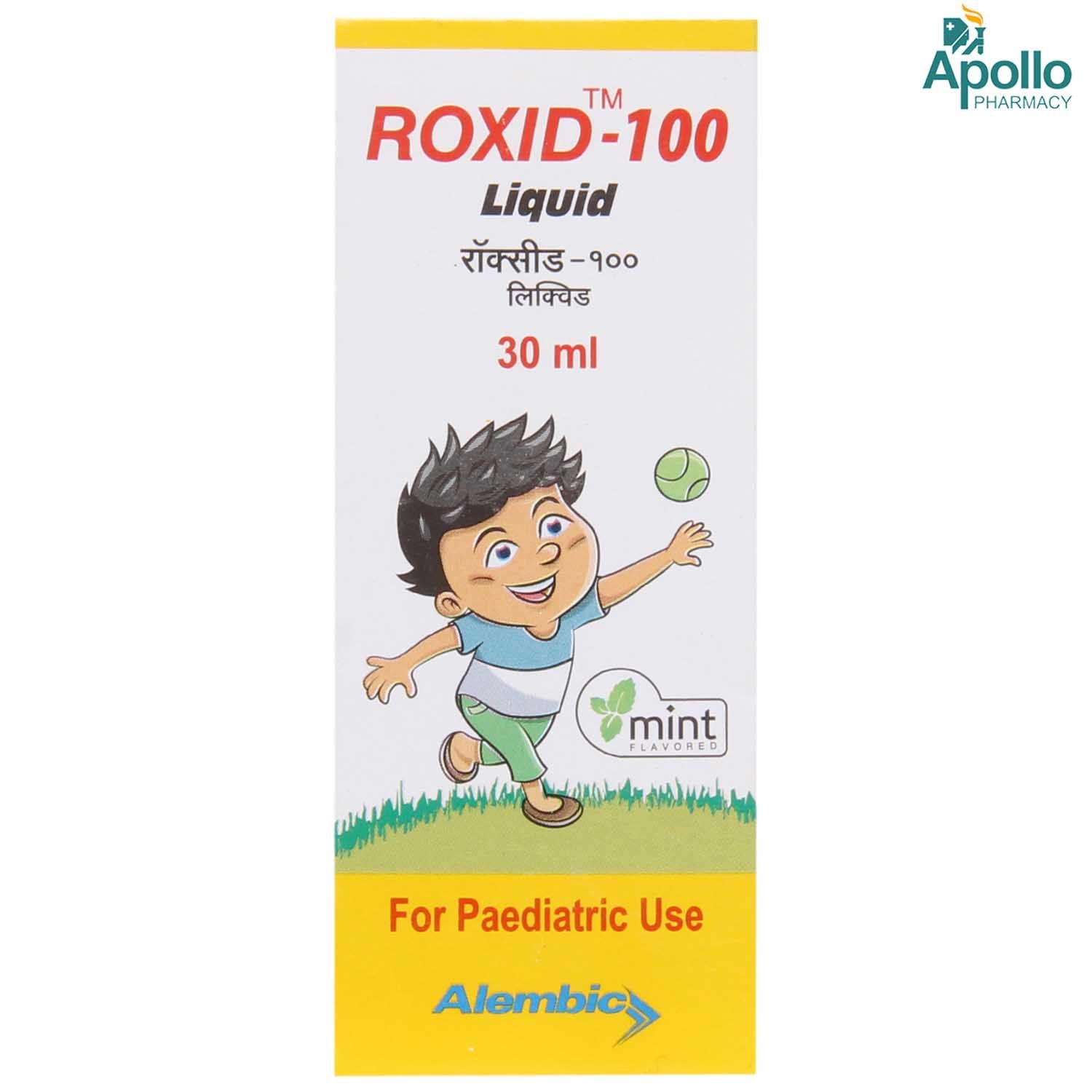Roxithromycin
About Roxithromycin
Roxithromycin is indicated in the treatment of mild to moderately severe bacterial infections. Bacterial infections are caused due to the multiplication of harmful bacteria inside or on the body.
Roxithromycin contains 'Roxithromycin' that works by interfering with the protein synthesis of the bacteria, which is necessary for their survival. Thus, it helps in treating bacterial infections.
Roxithromycin may cause common side effects, such as nausea, vomiting, and diarrhoea. Most of these side effects do not require medical attention and will resolve gradually over time. However, you are advised to seek medical advice if these side effects bother your child for a long time.
Let your doctor know if your child is allergic to any of the components in Roxithromycin. Keep your doctor informed about your child's health condition and medications to rule out any side effects/interactions.
Uses of Roxithromycin
• Upper and Lower Respiratory Tract Infections: Roxithromycin is effective in treating infections such as pharyngitis, tonsillitis, sinusitis, bronchitis, and community-acquired pneumonia. It works by stopping the growth of bacteria, helping relieve symptoms like sore throat, cough, nasal congestion, and fever.
• Ear Infections (Otitis Media): Roxithromycin is used to manage middle ear infections in children, reducing ear pain, fever, and inflammation by targeting the bacteria responsible.
• Skin and Soft Tissue Infections: Roxithromycin treats conditions like impetigo, cellulitis, and infected wounds. It helps reduce redness, swelling, and pus formation by eliminating the infection-causing bacteria.
• Urinary Tract Infections (UTIs): Roxithromycin may be prescribed for uncomplicated UTIs in children, helping relieve symptoms such as painful urination and abdominal discomfort by clearing the bacterial infection.
• Alternative for Penicillin-Allergic Children: Roxithromycin is a macrolide antibiotic and can be used as an alternative in children who are allergic to penicillin or cephalosporins.
Medicinal Benefits
Roxithromycin belongs to the group of medicines called macrolide antibiotics indicated in the treatment of mild to moderately severe bacterial infections such as respiratory tract, urinary tract, and soft tissue infections. Roxithromycin contains 'Roxithromycin' that works by interfering with the protein synthesis of the bacteria, which is necessary for their survival. Thus, it helps in treating bacterial infections. Roxithromycin is a broad-spectrum antibiotic that is active against most gram-positive and gram-negative bacteria.
Directions for Use
Storage
Side Effects of Roxithromycin
- Nausea
- Vomiting
- Diarrhoea
Drug Warnings
Let your doctor know if your child is allergic to any of the components in Roxithromycin. Inform your doctor if your child has liver or kidney problems. If your child is on any other medications, including vitamin/mineral supplements or herbal products, tell your doctor.
Drug Interactions
Drug-Drug Interactions: No interactions found/established.
Drug-Food Interactions: No interactions found/established.
Drug-Disease Interactions: No interactions found/established.
Drug-Drug Interactions Checker List:
Safety Advice

Alcohol
not applicable-

Pregnancy
not applicable-

Breast Feeding
not applicable-

Driving
not applicable-

Liver
consult your doctorPlease consult the doctor if your child has a liver impairment or if you have any concerns regarding this.

Kidney
consult your doctorPlease consult the doctor if your child has kidney problems.

Children
safe if prescribedRoxithromycin is safe for children if prescribed by the doctor. Your doctor may prescribe the dose and duration to be used based on the child's condition and age.
Habit Forming
Diet & Lifestyle Advise
- Antibiotics can alter the useful bacteria in the stomach, which help in digestion. Therefore, you are advised to give your child foods rich in probiotics.
- Include fibre-rich food like whole grains, beans, lentils, berries, broccoli, peas and bananas in your child's diet.
- Make sure your child is well rested.
Patients Concern
Disease/Condition Glossary
Bacterial infections: A bacterial infection is a condition in which harmful bacteria enter, multiply, and infect the body. It can target any body part and multiply very quickly. Symptoms of bacterial infections include fever, tiredness, headache, nausea or vomiting.
FAQs
Roxithromycin belongs to the group of medicines called macrolide antibiotics, which are indicated for treating mild to moderately severe bacterial infections.
Roxithromycin works by interfering with the protein synthesis of the bacteria, which is necessary for their survival. Thus, it helps treat bacterial infections.
Diarrhoea might be a side effect of Roxithromycin. If your child experiences diarrhoea, give them lots of fluids and non-spicy food. Consult a doctor if the condition persists or worsens.
It is recommended to complete the course of Roxithromycin even if your child feels better as it is an antibiotic, and stopping it in between may lead to a severe infection, and also will stop responding to the antibiotic (antibiotic resistance).




